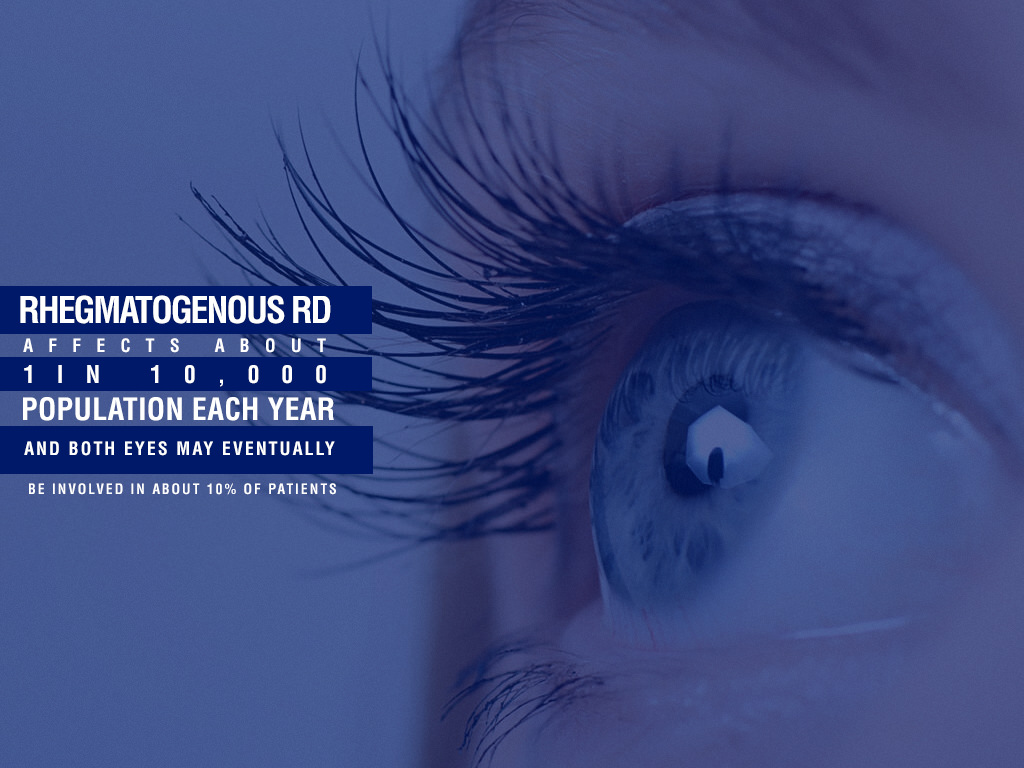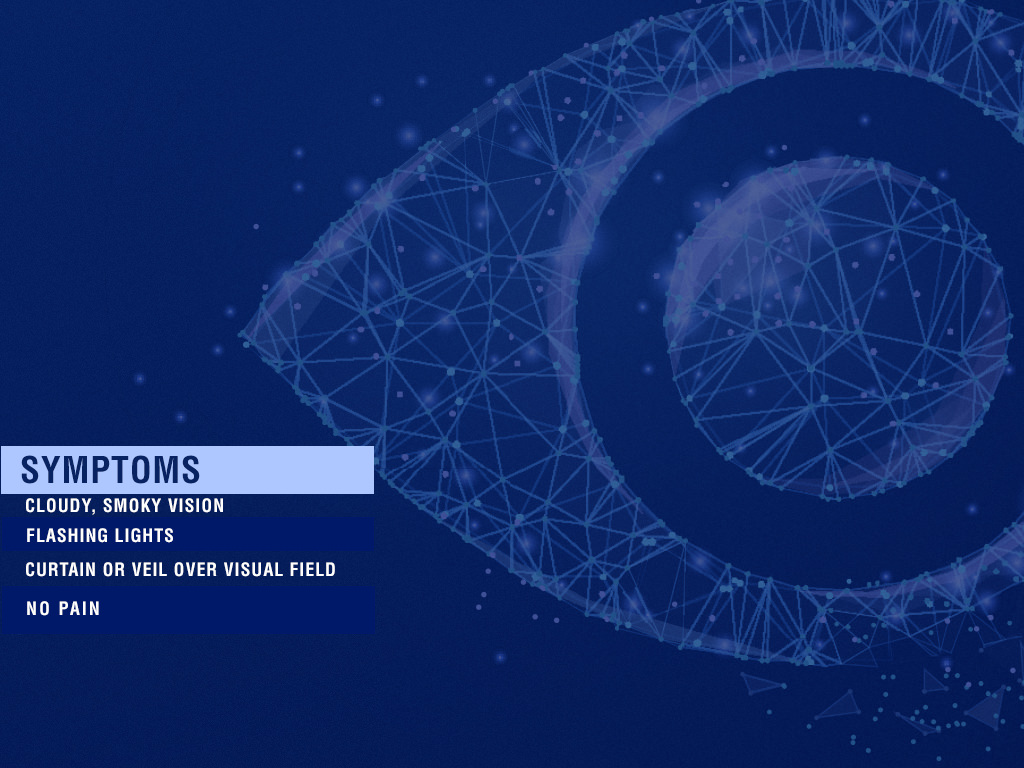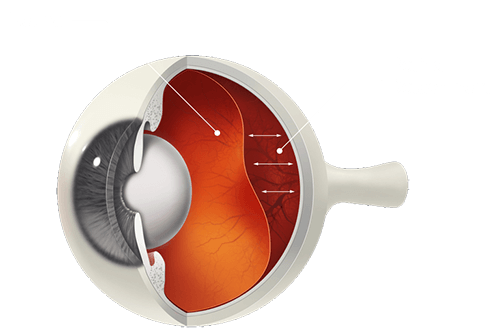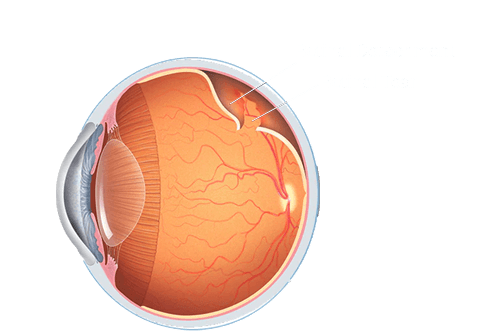What Is
Retinal
Detachment?


The retina is a thin layer of tissue located at the back of the eye, and plays a crucial role in helping you have good vision. Retinal detachment (also known as a detached retina) is a serious eye condition that involves the pulling away or loosening of the retina If the retina detaches from its normal position, light can no longer be processed and images cannot be formed, resulting in decreased vision or vision loss. This is why a detached retina is considered an eye emergency.
Thank you
We’ll get back to you soon.

What are the causes of a detached retina?
The most common risk factors include:
- 1. Being diabetic.
- 2. Genetic factors, such as having family members who have developed this eye condition.
- 3. Having suffered past trauma to the eye.
- 4. Having undergone cataract surgery, or other types of eye surgery.
- 5. Having extreme myopia or near-sightedness, since this condition causes a thinner than average retina that may be more prone to detaching.
- 6. Having history of eye disorders and other conditions affecting the retina and other eye tissues.

What are the types of retinal detachment?
- 1. Rhegmatogenous detachment is the most common type. It's caused by changes to the vitreous fluid and begins with a tear or hole in the retina that can cause a full detachment over time.
- 2. Tractional detachment is caused by scar tissue and is common in diabetic patients.
- 3. Serous or exudative detachment is a rare condition that can result from eye injury or inflammation.
What Are The Symptoms Of A
Detached Retina?
A detached retina is not painful, but it's still a medical emergency that can lead to vision loss, so it's essential that you are familiar with the symptoms and seek immediate medical attention if you experience any of the following:
- Floaters (specks, bubbles, or string-shaped images) that drift or “float” and interfere with your vision.
- Shorts bursts of light or flashes.
- A grey curtain-like shadow moving from the sides to the centre of your field of vision.
- A distortion in the perception of straight shapes and lines, which may appear curved.
- Loss of vision.
Retinal Detachment F.A.Q's
How is this condition diagnosed?
A complete eye examination is required and test like fundus photography might be required.
How is this condition treated?
Immediate surgery is first line of treatment. Surgery may involve laser, photoeoagulation, scleral bukling, vitrectomy.
Thank you
We’ll get back to you soon.
How can you prevent a detached retina?
Because in many cases detached retinas occur as part of the ageing process, 100% effective prevention is not always possible. However, you can minimise its impact on your vision through early detection and prompt treatment. Regular eye examinations are the best form of prevention, specially if you have an above-average risk of developing this condition.
